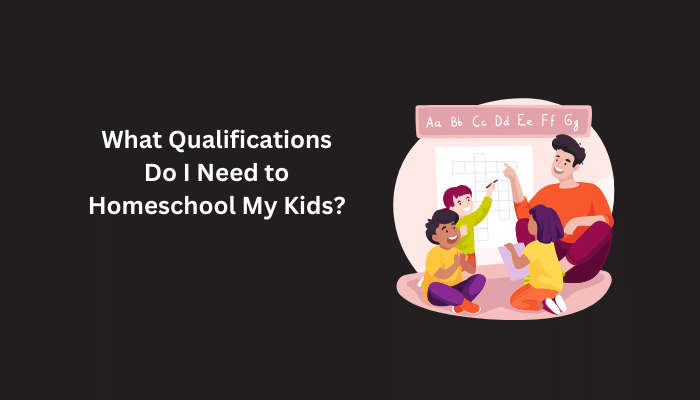Embarking on the homeschooling adventure in Australia? Buckle up, because you're about to enroll in the best 'school' on the block for your kid!
In recent years, homeschooling has emerged as a popular educational choice for families across Australia, offering a flexible and personalized approach to learning tailored to each child's needs and interests. As we delve into 2024, the landscape of homeschooling continues to evolve, providing families with a wealth of resources and support to navigate this educational path effectively.
Understanding Homeschooling Programs In Australia
Homeschooling is fully recognised and legal across all states and territories in Australia, granting families the freedom to choose this educational route without encountering legal barriers.
However, the specific regulations, application processes, and monitoring can vary greatly by state and territory, and parents must consult their local education authority for details.
Unlike traditional school settings, homeschooling encourages a departure from conventional norms, allowing for personalised learning experiences that cater to the individual needs and interests of each child. However, families must remain vigilant against predatory companies selling homeschool programs, emphasizing the importance of thorough research and selecting reputable curriculum providers.
Difference Between Homeschooling Programs In Australia & Distance Education
|
Aspect |
Homeschooling |
Distance Education |
|
Responsibility for Curriculum |
Parents take full responsibility for designing and implementing the curriculum within the home environment. |
The curriculum is administered by the school and delivered remotely. |
|
Study Environment |
Learning takes place within the home environment. |
Learning can take place remotely, allowing flexibility in study locations. |
|
Flexibility |
Offers maximum flexibility in terms of scheduling and curriculum customization. |
Provides flexibility in study hours but follows a structured curriculum provided by the school. |
|
Interaction |
Interaction primarily occurs within the family unit or through community activities. |
Interaction with teachers and peers may be facilitated through online platforms or virtual classrooms. |
|
Teacher Involvement |
Parents serve as the primary educators, guiding their children's learning journey. |
Teachers employed by the school oversee students' progress and provide instructional support. |
|
Curriculum Customization |
The curriculum is to meet the individual needs and interests of each child. |
It follows a predetermined curriculum set by the school, with limited scope for customisation by individual students. |
|
Administrative Support |
Minimal administrative support; parents are responsible for keeping records and fulfilling legal requirements. |
The school provides administrative support, including enrollment, assessment, and grading. |
|
Learning Pace |
It is determined by the child's progress and individual learning style. |
The student might have to follow school deadlines and structured lesson plans. |
|
Parental Involvement |
It requires active parental involvement in all aspects of the child's education. |
Parents may play a supportive role in their child's education but have less direct involvement in instructional delivery. |
|
Socialisation |
Opportunities for socialisation may primarily occur through community activities and extracurricular involvement. |
Socialisation may occur through virtual interactions with teachers and peers, school-sponsored events and activities. |
How to Homeschool in Australia?
Starting homeschooling in Australia involves several essential steps to ensure legal compliance and education for your child. Here's a detailed guide on how to get started:
1. Submit a Written Application for Approval to the State Education Department:
Before embarking on your homeschooling journey, submit a written application for approval to the state education department. This application is a formal notification of your intention to homeschool your child and allows authorities to monitor your child's educational progress. Do keep in mind that procedures for applying to homeschool can vary, including the format and detail of applications across different states and territories. Encourage consulting local education authorities for the most accurate information.
2. Educational Plan Preparation:
While homeschooling regulations vary by state, some states may require families to submit an educational plan outlining the curriculum and learning goals for their homeschooled children. An educational plan typically includes details such as subjects to be covered, instructional methods, learning objectives, and assessment strategies. While the specifics may differ, the overarching goal is to ensure that your child receives a quality education that aligns with state standards.
3. Research State-Specific Requirements:
It's essential to familiarise yourself with the homeschooling regulations specific to your state or territory. Each jurisdiction may have its own set of requirements regarding documentation, reporting, and assessment. By understanding these requirements, you can ensure compliance and avoid potential legal issues.
4. Beware of Consulting Scams:
When navigating the process of starting homeschooling, it's essential to remain vigilant against consulting scams that promise shortcuts to approval. Some companies or individuals may offer expedited approval processes for a fee, but these services may be fraudulent. To safeguard against scams, rely on reputable sources of information and guidance, such as state education departments or homeschooling associations.
5. Utilise Resources and Examples:
To better understand the educational planning process and requirements specific to your state, consider seeking out resources or examples of educational plans. Many state education departments provide guidance documents or templates for creating an educational plan. Additionally, homeschooling associations and online communities may offer support and advice from experienced homeschooling families.
By following these steps and staying informed about state-specific requirements, you can navigate the process of starting homeschooling in Australia and ensure a successful educational experience for your child.
Do Parents Get Paid to Homeschool in Australia?

While there are no specific payments or financial incentives for homeschooling, families receiving Jobseeker or Parenting Payment may be exempt from work obligations. Additionally, homeschooling families in remote areas may be eligible for the Assistance for Isolated Children Scheme (AIC), providing financial assistance to support their children's education.
How Much Does It Cost to Homeschool in Australia?
Determining the cost of homeschooling in Australia can vary significantly depending on various factors, including the resources and materials you choose to invest in, as well as your family's unique circumstances. While it's challenging to provide an exact figure due to the wide range of expenses involved, we can offer some insights to help you budget effectively:
1. Resource Materials:
The cost of curriculum materials, textbooks, workbooks, and educational resources can vary based on your preferences and curriculum choices. Some families opt for pre-packaged curriculum kits, while others prefer to piece together materials from various sources. Additionally, online subscriptions, educational software, and learning resources can contribute to expenses.
2. Supplementary Activities:
Beyond curriculum materials, you may incur costs associated with extracurricular activities, field trips, educational outings, and enrichment programs. These activities can provide valuable hands-on learning experiences but may require additional budgeting.
3. Technology and Supplies:
Investing in technology, such as computers, tablets, and educational software, may be necessary for some subjects or learning activities. Additionally, you'll need to budget for basic school supplies like stationery, art materials, and science equipment.
4. Professional Development:
While not always necessary, some homeschooling parents may choose to invest in professional development opportunities, such as workshops, courses, or conferences, to enhance their teaching skills and knowledge.
5. Community Resources:
Taking advantage of free or low-cost community resources, such as local libraries, museums, parks, and community centres, can help offset expenses and provide valuable learning opportunities without additional costs.
While it's challenging to provide an estimate of yearly expenses, surveyed homeschooling families have reported spending anywhere from a few hundred to several thousand dollars annually on homeschooling-related expenses. By budgeting carefully, prioritising free or low-cost resources, and exploring community support networks, you can manage the cost of homeschooling while providing your child with a quality education tailored to their needs.
How Do Homeschooled Kids Get Into University?
Homeschooled children have access to various non-traditional pathways that can lead them to university admission. Here's a closer look at these pathways and how homeschooling can sometimes facilitate faster advancement to university:
Completion of Recognised Qualifications:
- Homeschooled students may pursue recognised qualifications such as the International Baccalaureate (IB) or the Tertiary Preparation Program (TPP). These programs offer a structured curriculum that prepares students for tertiary education and may provide a pathway to university admission.
Advanced Studies or Real-World Experience:
- Homeschooled children often have the flexibility to pursue advanced studies or gain real-world experience at an earlier age than their peers in traditional schooling. This accelerated learning pace can sometimes enable them to meet university admission requirements sooner than expected.
Examples of Accelerated Paths:
- For instance, Emma, a homeschooled student, completed her IB diploma by the age of 17 and gained admission to her desired university program ahead of schedule. Similarly, Jack, who followed a personalised homeschool curriculum focused on STEM subjects, secured early acceptance to a prestigious engineering program based on his exceptional academic achievements.
By leveraging their unique educational opportunities and flexible learning environment, homeschooled children may advance to university faster than their peers. These accelerated paths demonstrate the benefits of homeschooling in facilitating academic excellence and early entry into tertiary education.
What Qualifications Do I Need to Homeschool My Kids?

Parents don’t require any specific qualifications to homeschool their children in Australia. Unlike traditional teaching roles, homeschooling does not mandate formal teaching credentials. Instead, parental engagement and commitment to their child's education are considered more critical factors for homeschooling success. While a background in education or teaching experience may be advantageous, it is not a prerequisite for homeschooling. The emphasis is placed on creating a supportive learning environment where children can thrive academically and personally under parental guidance.
Now, let's unpack one of homeschooling's biggest myths: socialisation, and discover how homeschooled kids are achieving it.
How Will Kids Socialise If They're Homeschooled?
One concern parents may have about homeschooling is the socialisation aspect for their children. However, homeschooled children have ample opportunities to socialise and interact with peers despite not attending traditional school settings.
With the increasing mainstream acceptance of homeschooling in Australia, families can access various activities and organisations that support socialisation.
Homeschooling co-ops, sports teams, clubs, community groups, and cultural organisations offer opportunities for children to connect with others and develop social skills. Additionally, community events, field trips, and extracurricular activities provide valuable opportunities for homeschooled children to interact with peers and engage in collaborative learning experiences.
Why is Homeschooling a Good Option?
Homeschooling offers families a unique educational approach prioritising flexibility, personalised learning, and holistic development. Here are some reasons why many families choose homeschooling and embrace its benefits:
-
Flexibility: Homeschooling allows families to customise their children's education according to their individual needs, interests, and learning styles. Flexible schedules and tailored curricula enable children to learn and explore subjects deeply at their own pace.
-
Enrichment: Homeschooling provides opportunities for hands-on learning, real-world experiences, and immersive educational activities that go beyond traditional classroom instruction. Children can delve into topics of personal interest, pursue passions, and develop critical thinking skills through experiential learning.
-
Emphasis on Independent Thought and Lifelong Learning: Homeschooling fosters independent thought, curiosity, and a love for lifelong learning. Children are encouraged to ask questions, seek answers, and develop a growth mindset that prepares them for success in an ever-changing world.
-
Strong Family Bonds: Homeschooling strengthens family bonds by allowing parents to actively participate in their children's education. Families can spend quality time together, share meaningful experiences, and build lasting relationships based on mutual respect and collaboration.
In conclusion, homeschooling offers families a unique educational approach that prioritises flexibility, personalised learning, and holistic development.
FunFox's services can complement your homeschooling journey by providing access to a wide range of educational resources, tutoring support, and extracurricular activities tailored to your child's needs and interests. Whether you're just starting or looking to enhance your homeschooling experience, FunFox is here to support you every step of the way.
Start your homeschooling adventure with FunFox today and unlock a world of learning possibilities for your child.










